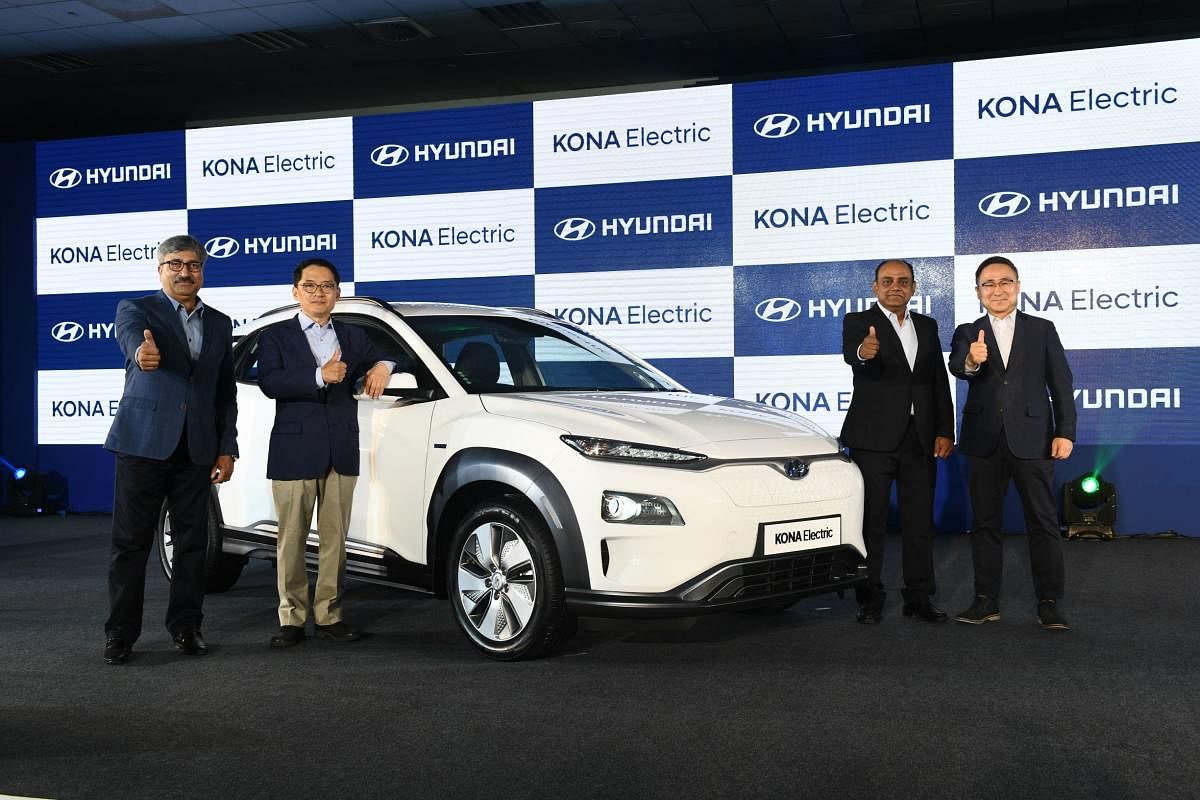
The buzz is all about electric vehicles (EVs) and why India needs to steadily move towards them due to the polluted state of the environment.
It is good to think of moving in that direction, but there are hitches and several of them at that.
For starters, EVs are terribly expensive now as manufacturers are not getting incentives from the government and this is one of the biggest problems the industry is facing. The end product is expensive and very few ends up buying them. The government announced tax benefits and GST cuts on EVs, but it does not appear to be enough.
The other main problem is that of charging infrastructure and the country is woefully behind when it comes to that. Moreover, there are the other concerns like what to do with dead batteries etc. Clearly, a lot of things need to be put in place before India goes the mass EV way.
“The whole landscape is very ambiguous now,” said BMW India President and CEO Rudratej Singh. “Our principles are very clear. If the consumers want it and we can give the customers satisfaction of our standards, we will go everywhere our customer wants us to go. My personal view is that we are not clear in the magnitude or direction of the vector right now, in an engineering term. I think we will wait and watch.”
Hyundai Motor Group Vice-president (Head of Engine Performance) Je-Rok Chun said: “The question is how much incentive the government can give for cleaner technology vehicles. The situation is the same in all countries and not just India.
“If we have a larger portion of EVs, cost can be reduced. It is impossible right now. All OEMs are trying to reduce cost and so are battery manufacturers. But in my expectation, the cost cannot be reduced anytime soon.
“Small cars in countries like India will be possible with incentives from the government. If electric cars cost as much as petrol ones, customers will buy it but otherwise it is impossible,” he added.
Kia Motors India Vice-president and Head of Sales and Marketing Manohar Bhat stated: “The government should have a long-term vision with inputs from all stakeholders, including consumers, infrastructure providers and the automobile industry. We should have a very clear and well thought out plan which is future proof and future-ready.
“It should be long term so that the industry can also grow with it. It should not be the situation that an investment is made and the policy is then changed, with the investment not bearing fruit. It is a disaster for the person who has invested also. If someone feels that the policy is not long-lasting, the investment might also be slow,” he felt.
Hyundai Motor India MD and CEO SS Kim felt that customers’ mindset has to be changed also. “With products like the Kona, we want to contribute in changing the customers’ mindset about driving distance and concern about charging stations. We hope those who have experienced the Kona will change their perspective and point of view about EVs. Maybe that is the starting point,” he said.
“But eventually, it has to be the mass-market EV that is priced lower and has optimum range. Once we introduce a mass-market EV, it can be introduced to fleet customers like Ola and Uber as well. We are looking at 2022-23 for mass-market cars depending on the whole industry and infrastructure,” he added.
Hyundai Motor Group Senior Research Engineer (Manual Transmission) Jekee Lee stated: “Mass market EVs depend on the market situation and government policy. Recently, PM Modi said internal combustion engine and EVs will co-exist in India. If the government changes the policy, it will affect our strategy as well.
In the meantime, it would perhaps be a good idea to increasingly move towards cleaner technologies like hybrids.
Je-Rok Chun said: “Hybrid technology is possible in India because it is already available in the US and Korean domestic markets. But hybrids are not very popular in Europe. In India, hybrids are at the initial stage but the government does not want to give incentives. We are interested in hybridisation or electrification but it all depends on customer demand and decisions of the government.”
The intention of pushing for cleaner vehicle technology like electric is definitely good and also the need of the hour. Automakers are ready for production too. However, the ground reality is that we appear to be some distance away from having an adequate number of charging points for instance.
Said Bhat: “Our factory is ready right now to produce an electric, hybrid or plug-in hybrid vehicles. Now, the next question is does the customer demand it? If there is a demand for EVs, I would be more than happy to start production today. The customer should want it, have the appetite for purchasing it and that will come when the infrastructure is developed. There is no point in having an electric vehicle if it can’t be charged or if it does not have a big enough capacity. More importantly, the pricing should be good,”
BMW said they were ready too. “It is about customer satisfaction. In terms of whether we are capable, we are absolutely capable. I would be very excited to throw everything and the kitchen sink in our armoury and adapt if for India,” stated Singh.
The industry is keen on producing mass-market EVs and customers will obviously buy if prices come down. Importantly, the problem of charging infrastructure needs to be addressed. We want to embrace EVs quickly, but things are not quite ready for it. That’s the dilemma India is in right now.